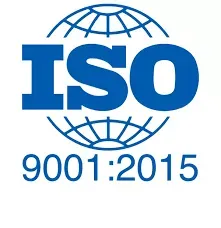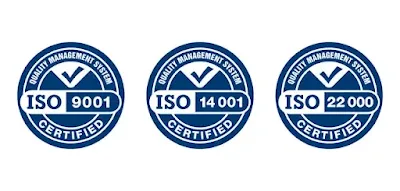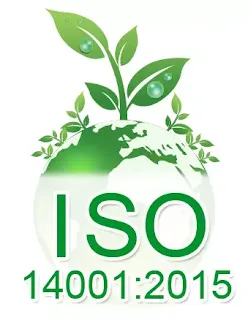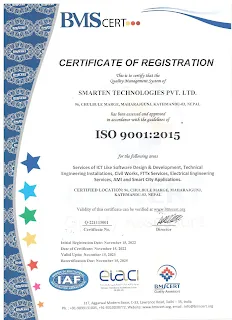Table of Contents
- A Guide to ISO Certification in Nepal
- What Is ISO? Definition and Background
- What does working with an organization that has an ISO Standard mean?
- What Are ISO Frameworks and Controls?
- What Are the Different Types of ISO Standards?
- How to get ISO Certification in Nepal?
- Step-by-step Process of ISO Certification in Nepal
- ISO Consultancy
- Benefits of ISO Certificate
- How to Check ISO Certificate Validity Online?
- How Much Does ISO Certification Cost?
- Who is ISO suitable for?
- What is the Benefit of ISO Certification?
- Which Set of Standards is Right for My Organization?
- What is ISO Certification in Nepal?
- How is ISO relevant today?
- ISO Compliance vs. ISO Certification: What is the Difference?
- Does Your Company Need ISO Certification?
- ISO sounds great, can I just buy a certification?
- Is having an ISO certification mandatory?
- If I can't just buy a certification, what is involved in getting set up?
- How can ISO Certification improve your business?
- What are the five most common ISO standards?
- Frequently asked Questions
A Guide to ISO Certification in Nepal
This guide provides a comprehensive overview of ISO certification in Nepal. It covers the basics of ISO standards, how to apply for them, various types of ISO certifications available, and the benefits and costs associated with obtaining ISO certification.
Start by understanding what ISO certification is and explore the different types of international standard certifications such as ISO 9001, ISO 27001, ISO 14001, ISO 45001, ISO 17025, and ISO 22000.
Next, learn about the application process, including conducting a gap analysis and implementing necessary changes to align your company's processes and procedures with the appropriate ISO standard.
Explore the benefits of ISO certification in Nepal, and understand the certification's validity and associated costs.
To navigate through the certification process efficiently, consider consulting with an experienced ISO consultant to ensure your company meets all the necessary requirements of the relevant ISO standards.
What Is ISO? Definition and Background
The International Organization for Standardization (ISO) is an independent, non-governmental organization that develops and publishes international standards for products, services, and systems.
Established in 1947 and headquartered in Geneva, Switzerland, ISO aims to ensure that products and services are safe, reliable, and of good quality. It operates through a network of national standards bodies, such as ANSI in the United States and BSI in the United Kingdom.
ISO's mission is to promote global standardization and facilitate international trade by developing consensus-based standards. Experts from various sectors worldwide contribute to the development of ISO standards, ensuring they meet diverse industry, government, and consumer needs.
ISO standards cover a wide range of topics, including quality management (ISO 9001), environmental management systems (ISO 14001), information technology (ISO 27001), and occupational health and safety (ISO 45001).
Popular ISO standards include ISO 9001 for quality management, ISO 14001 for environmental management, ISO 27001 for information security management, and ISO 45001 for occupational health and safety.
What does working with an organization that has an ISO Standard mean?
Working with an organization that has an ISO standard means that the organization has been independently certified to have implemented and maintained a quality management system (QMS) that meets the requirements of the relevant ISO Certificate.
This certification involves evaluation by a third-party auditor who confirms that the organization's QMS meets the standard's requirements.
Benefits of working with an organization that has an ISO certification include:
Improved efficiency and effectiveness:
Organizations with ISO certification have established processes and procedures to enhance operational efficiency and effectiveness, leading to improved performance and higher customer satisfaction.
Increased customer confidence:
ISO certification signifies quality and reliability, boosting customer confidence in the organization's products or services.
Expanded business opportunities:
ISO certification can create new business opportunities, as some customers or suppliers require certification as a prerequisite for collaboration.
Enhanced regulatory compliance:
ISO-certified organizations adhere to relevant laws and regulations, mitigating legal and financial risks for both the business and its customers.
Additionally, ISO-certified organizations undergo regular audits (typically annual or bi-annual) to maintain certification, ensuring ongoing compliance with the standard's requirements.
What Are ISO Frameworks and Controls?
ISO frameworks and controls encompass the guidelines, procedures, and best practices organizations adopt to implement and maintain a quality management system (QMS) aligned with the requirements of specific ISO standards.
ISO frameworks provide the overarching structure and direction for an organization’s QMS. They typically include:
- Documenting and implementing processes and procedures
- Conducting internal audits to ensure compliance
- Managing and controlling documents and records
- Continuous improvement of the QMS
ISO controls, on the other hand, are specific procedures and practices organizations use to ensure the effectiveness and compliance of their QMS with the relevant ISO standards. These controls may include:
- Risk management procedures
- Quality control processes
- Change management procedures
- Training programs
- Compliance monitoring and reporting
ISO frameworks and controls help organizations identify issues, enhance operations, and demonstrate commitment to quality and compliance. Different ISO standards have specific requirements for frameworks and controls; for instance, ISO 9001 for Quality Management Systems differs from ISO 27001 for Information Security Management Systems.
What Are the Different Types of ISO Standards?
Below is an overview of some of the main types of ISO certifications and their purposes:
-
ISO 9001:2015 - Quality Management Systems (QMS):
This certification focuses on quality management and is widely recognized as the ISO 9001 standard.

ISO 9001 provides requirements for implementing a quality management system applicable to any organization, irrespective of size or industry.
-
ISO 14001:2015 - Environmental Management Systems (EMS):
This certification focuses on environmental management, helping organizations demonstrate their commitment to environmental responsibility.
ISO 14001 provides a framework for organizations to manage their environmental impacts effectively and improve environmental performance.
-
ISO 15189:2022 - Medical Laboratories:
ISO 15189 specifies requirements for quality and competence in medical laboratories, ensuring accuracy and reliability in testing and measurement.
ISO 15189 ensures that medical laboratories maintain high standards in management, personnel, equipment, and reporting.
-
ISO 45001:2018 - Occupational Health and Safety Management Systems (OHSMS):
ISO 45001 provides a framework for managing occupational health and safety risks, ensuring a safe working environment.
ISO 45001 ensures organizations implement measures to prevent work-related injuries and improve health and safety performance.
-
ISO 27001:2013 - Information Security Management Systems (ISMS):
ISO 27001 provides a framework for managing information security risks, safeguarding valuable data assets.
ISO 27001 ensures organizations implement robust information security measures to protect against data breaches and cyber threats.
-
ISO 22000:2018 - Food Safety Management Systems (FSMS):
ISO 22000 focuses on food safety management, ensuring organizations maintain safe practices throughout the food supply chain.
ISO 22000 ensures organizations implement food safety practices to deliver safe products to consumers.
These ISO standards represent a selection from over 21,000 standards available, covering diverse industries and topics.
How to get ISO Certification in Nepal?
To obtain ISO certificate in Nepal, organizations must follow these steps:
Identify the relevant ISO standard:
The first step is to identify the ISO certificate standard that is most appropriate for the organization's products, services, or processes.Conduct a gap analysis:
Once the relevant standard has been identified, your business must conduct a gap analysis to determine how well its existing processes and procedures align with the standard's requirements.Implement changes:
Based on the gap analysis, the organization must implement any necessary changes to bring its processes and procedures into compliance with the standard.Certification audit:
Once your business has implemented the necessary changes, a certification body ISO Certification in Nepal Pvt. Ltd. will conduct an on-site audit to verify that the organization's QMS meets the requirements of the standard.Certification:
If the certification body ISO Certification in Nepal Pvt. Ltd. is satisfied that the organization meets the standard's requirements, it will award the organization with an ISO certificate.
Step-by-step Process of ISO Certification in Nepal
Here is a more detailed step-by-step process of how to get ISO certificate in Nepal:
Identify the relevant ISO standard:
The first step is to determine which ISO certificate standard is most appropriate for your organization's products, services, or processes.
Conduct a gap analysis:
An experienced consultant will conduct a gap analysis to determine how well your existing processes and procedures align with the standard's requirements.
Implement changes:
Based on the gap analysis, your organization will implement any necessary changes to bring its processes and procedures into compliance with the standard.
Internal audit:
Your organization will conduct internal audits to ensure compliance with the standard.
Pre-assessment audit:
A certification body will conduct a pre-assessment audit to verify that your organization is ready for the certification audit.
Certification audit:
A certification body will conduct an on-site audit to verify that your organization's QMS meets the requirements of the standard.
Certification:
If the certification body is satisfied that your organization meets the standard's requirements, it will award your organization with an ISO certificate.
After an organization has been certified, it must maintain its compliance with the relevant ISO certificate standard through regular surveillance audits.
These audits are conducted by the certification body ISO Certification in Nepal Pvt. Ltd. on a regular basis (usually annually) to ensure that the organization is continuing to meet the requirements of the standard and that it is maintaining the effectiveness of its management system.
ISO Consultancy
ISO Certification in Nepal Pvt. Ltd. is a consulting firm that specializes in helping organizations in Nepal achieve ISO certification.
we provide a range of services to support organizations throughout the certification process, including gap analysis, implementation of changes, internal audits, pre-assessment audits, and certification audits.
We also offer post-certification support, such as annual surveillance audits and recertification audits.
Our company has a team of experienced and qualified consultants who are familiar with the requirements of any ISO certificate standard and can guide organizations through the certification process.
We also provide training and support to your organization to maintain their certification over time.
Benefits of ISO Certificate
An ISO certificate is a certification that a company or organization has met a set of standards set by the ISO. Some benefits of having an ISO certificate include:
Improved efficiency and productivity:
The International Organization for Standardization standard provides a framework for your company to improve their processes and operations, leading to increased efficiency and productivity.
Increased customer satisfaction:
Your ISO Certificate focuses on customer satisfaction, which can lead to increased customer loyalty and repeat business.
Increased marketability:
Your ISO certificate is recognized globally, and can give your company a competitive advantage in the marketplace.
Improved quality management:
ISO standard provides a framework for quality management, which can lead to improved product or service quality of your company.
Enhanced reputation:
ISO certification demonstrates your company's commitment to quality and continuous improvement, which can enhance its reputation in the marketplace.
Easier to do business with other countries:
ISO certificate is globally recognized, so it's easier for your company to do business with other countries.
Enhanced legal and regulatory compliance:
ISO standards help your company to comply with laws and regulations, reducing the risk of penalties and fines.
How to Check ISO Certificate Validity Online?
One can check the validity of an ISO certificate online by visiting the official website of the certifying body.
ISO Certification in Nepal Pvt. Ltd. also provide online verification systems that allow you to check the validity of a certificate by entering the certificate number or the name of the organization.
How Much Does ISO Certification Cost?
The cost of ISO certification can vary widely depending on the size and type of organization, the standard being certified to, and CB ISO Certification in Nepal Pvt. Ltd. conducting the audit.
On average, the cost can range from a few thousand dollars to tens of thousands of dollars.
Who is ISO suitable for?
ISO standards are suitable for organizations of any size and in any industry. They provide a framework for improving processes and operations, and can be customized to fit the specific needs of an organization.
What is the Benefit of ISO Certification?
ISO certification can provide a number of benefits including improved efficiency and productivity, increased customer satisfaction, increased marketability, improved quality management, enhanced reputation, and enhanced legal and regulatory compliance of your company.
Which Set of Standards is Right for My Organization?
Choosing the right set of standards for your organization will depend on your specific needs and goals.
Some common ISO standards include ISO 9001 for quality management, ISO 14001 for environmental management, and ISO 27001 for information security management.
What is ISO Certification in Nepal?
ISO certification in Nepal is issued by accredited certification bodies. ISO Certification in Nepal Pvt. Ltd. is authorized to certify organizations worldwide that meet the requirements of ISO standards such as ISO 9001, ISO 27001, ISO 14001, ISO 45001.
How is ISO relevant today?
ISO standards are still relevant today as they provide a framework for your organization to improve processes and operations of your company, which can help you stay competitive in the global marketplace.
ISO Compliance vs. ISO Certification: What is the Difference?
ISO compliance refers to following the requirements of a specific ISO standard, while ISO certification is a formal recognition that an organization has met the requirements of a specific standard.
Does Your Company Need ISO Certification?
Whether a company needs ISO certification will depend on their specific goals and needs. Some companies may choose to pursue certification as a way to demonstrate their commitment to quality and continuous improvement, while others may not see the need for certification.
ISO sounds great, can I just buy a certification?
No, ISO certificate cannot be bought. It must be earned through a process of assessment, testing and certification.
Is having an ISO certification mandatory?
ISO certification is not mandatory, but it is widely recognized and can be a valuable tool for companies that want to improve their operations, increase productivity, and create a safe and healthy work environment.
If I can't just buy a certification, what is involved in getting set up?
The process of getting set up for ISO certificate typically involves conducting a gap analysis to identify areas of non-conformity, developing and implementing procedures to address those areas, and undergoing an audit by a ISO Certification in Nepal Pvt. Ltd.
How can ISO Certification improve your business?
ISO certificate can improve a business by providing a framework for improving processes and operations, leading to increased efficiency and productivity, improved quality management, and enhanced reputation, among other benefits.
What are the five most common ISO standards?
The five most common International Organization for Standardization standards are:
- ISO 9001 for quality management system
- ISO 14001 for environmental management system
- ISO 45001 for occupational health and safety management system
- ISO 27001 for information security management
- ISO 22000 for food safety management
Frequently asked Questions
What is ISO?
How can ISO certification benefit my organization?
What are the different types of ISO standards?
How can I obtain ISO certification in Nepal?
What is the cost of ISO certification?
Is ISO certification mandatory?
How can I check the validity of an ISO certificate online?
What are the benefits of working with an ISO-certified organization?
How to get ISO Certification?
To get ISO Certification, follow these steps:
- Identify
the relevant ISO standard for your industry.
- Implement
processes and systems that meet the standard requirements.
- Conduct
internal audits to ensure compliance.
- Choose
a reputable certification body like ISO Certification in Nepal Pvt. Ltd.
- Schedule
an audit with the certification body.
- Upon
successful assessment, receive your ISO certification.
Why ISO Certification?
ISO Certification is
essential for various reasons:
- Demonstrates
commitment to quality and customer satisfaction.
- Enhances
credibility and trust among stakeholders.
- Improves
processes, efficiency, and productivity.
- Increases
access to international markets.
- Helps
meet legal and regulatory requirements.
- Promotes
continuous improvement and risk management.
What is ISO 9002 certification mean?
ISO 9002 was a previous version of ISO 9001, which focused
on quality management without design control. However, it is now outdated, and
ISO 9001:2015 replaced it as the standard for quality management systems.
How to check ISO certificate number online?
To check an ISO certificate number online, visit the website
of the issuing certification body and enter the certificate number in the
provided search or verification tool.
How to obtain ISO certification?
To obtain ISO certification:
- Identify
the relevant ISO standard for your industry.
- Implement
processes and systems aligned with the standard.
- Conduct
internal audits to ensure compliance.
- Select
a reputable certification body and schedule an audit.
- After
a successful assessment, receive your ISO certification.
What is ISO 9001 certification?
ISO 9001 certification is the international standard for
quality management systems. It focuses on meeting customer expectations,
continuous improvement, and risk-based thinking.
What is ISO Certification?
ISO Certification is a process in which an independent
certification body verifies that an organization meets the requirements of a
specific ISO standard, indicating compliance with international best practices.
How to get ISO certification in Nepal?
To get ISO certification in Nepal:
- Choose
the relevant ISO standard for your business.
- Implement
processes and systems aligned with the standard.
- Conduct
internal audits to verify compliance.
- Contact
ISO Certification in Nepal Pvt. Ltd. for an ISO audit.
- Receive
your ISO certification after a successful assessment.
Why we need ISO certification?
ISO certification is necessary for:
- Demonstrating
commitment to quality and customer satisfaction.
- Enhancing
credibility and trust in the marketplace.
- Gaining
a competitive edge in national and international markets.
- Meeting
regulatory and customer requirements.
How does an industry get ISO certification?
An industry can obtain ISO certification by following these
steps:
- Selecting
the appropriate ISO standard applicable to its operations.
- Implementing
processes and systems in line with the standard requirements.
- Conducting
internal audits to ensure compliance.
- Engaging
a recognized certification body for an ISO audit.
- Receiving
ISO certification upon successful evaluation.
How to get ISO 9001 certification in Nepal?
To get ISO 9001 certification in Nepal:
- Develop
a quality management system according to ISO 9001 requirements.
- Train
employees on quality management principles.
- Implement
the system in your organization.
- Conduct
internal audits to verify compliance.
- Contact
ISO Certification in Nepal Pvt. Ltd. for an ISO 9001 audit.
- Receive
the certification upon successful assessment.
How to get ISO certificate in Nepal?
To obtain an ISO certificate in Nepal:
- Choose
the relevant ISO standard for your business.
- Implement
processes and systems according to the standard.
- Conduct
internal audits to ensure compliance.
- Select
ISO Certification in Nepal Pvt. Ltd. for certification.
- After
a successful audit, receive your ISO certificate.
How to update ISO certification?
To update ISO certification, organizations need to:
- Monitor
changes in the relevant ISO standard requirements.
- Adapt
their processes and systems accordingly.
- Conduct
internal audits to verify the changes' effectiveness.
- Inform
and schedule an audit with the certification body for the update.
What are the different ISO certifications and their
meanings?
There are various ISO certifications, each addressing
specific aspects of management and quality. Some common ones include ISO 9001
(Quality Management), ISO 14001 (Environmental Management), ISO 45001 (Occupational
Health and Safety), ISO 27001 (Information Security), and ISO 22000 (Food
Safety).
What does ISO 9001 certification mean?
ISO 9001 certification signifies that an organization has
implemented a quality management system meeting the requirements of ISO 9001.
It demonstrates the organization's commitment to providing quality products and
services while continuously improving processes.









